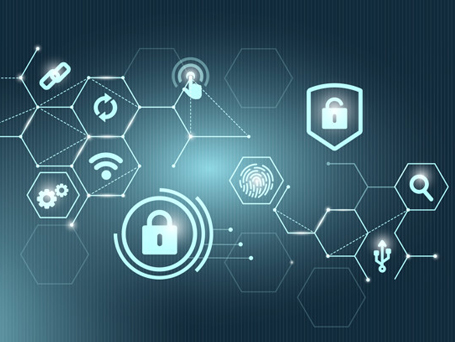Cyber security careers are one of the hottest and most in-demand fields for IT professionals. Are you interested in pursuing a career in this spotlight industry?
If so, you will need to combine broad technical skills with specific security knowledge along with various soft skills. If you do attain all these, you will become a veritable unicorn in the field of security and potentially an all-star security practitioner.
What are the common technical skills for cyber security careers?Here are the top technical skill sets:
- Security Incident Handling & Response:
A security practitioner must be able to handle any imminent threat of current violation of an organization’s security policies or standard security practices. These security incidents could include malware, ransomware, phishing, Advanced Persistent Threats, Distributed Denial of Service (DDoS) attacks, and more.
- SIEM Management:
A security practitioner must be able to manage and analyze the security information and event management (SIEM) tools and services. You will need to be able to create automation with the SIEM and take the real-time analysis produced from alerts and translate that into incident response plans.
- Audit & Compliance:
A security practitioner must be able to conduct a thorough review of the organization’s adherence to regulation guidelines, such as HIPAA, FISMA, SOX, PCI DSS, GDPR, ISO 27001 and 20000, and COBIT. Security audit and compliance knowledge is very important because any missed area of regulatory compliance could lead to significant fines and penalties for the organization.
- Analytics & Intelligence:
A security practitioner must be able to leverage analytics and intelligence gathering to identify and detect attacks as quickly as possible. Using analytics and intelligence allows the security practitioner to aggregate network and application data to prevent attacks from occurring in the future.
- Firewall/IDS/IPS Skills:
A security practitioner must be able to leverage a firewall to filter network traffic and prevent unauthorized access onto the network. In addition, the security expert must have a knowledge of Intrusion Detection Systems (IDS) and Intrusion Prevention Systems (IPS) and know how they relate to the firewall.
- Intrusion Detection:
A security practitioner must be able to operate the IDS and then identify any suspicious traffic on the network as well as any security policy violations.
- Application Security Development:
A security practitioner must be able to improve the security of any application by finding, fixing, and preventing its vulnerabilities. In addition, the expert must test and validate during the software development lifecycle (SDLC) so that vulnerabilities are addressed before an application is deployed.
- Advanced Malware Prevention:
A security practitioner must be able to leverage advanced threat protection software to prevent, detect, and identify Advanced Persistent Threats (APTs) that might circumvent traditional security solutions like anti-virus, firewalls, and IPS/IDS.
- Mobile Device Management:
A security practitioner must be able to work with the IT department to secure and deploy smartphones, tablets, and laptops as well as understand data loss prevention strategies.
- Data Management Protection:
A security practitioner must be able to handle, analyze, and securely store all types of data.
- Digital Forensics:
A security practitioner should understand forensic tools and investigative methods used to find data, anomalies, and malicious activity on the network, in files, or other areas of the business.
- Identity & Access Management:
A security practitioner needs to understand the best practices for Identity and Access Management (IAM) and ensure that the security policy demonstrates an acceptable use for various roles and responsibilities within the organization.
Now, here are the soft skills for cyber security careers:
- You’re a Leader
Security experts show leadership through their credibility, responsiveness, and ethics. A security expert earns trust from senior management, peers, and subordinates with excellent communication skills. An important skill to have is to understand the risks of the business, internally and externally. Security leaders provide actionable insights to their leadership and help this team make informed decisions.
- You’re Passionate About Learning
Security experts are continually learning the latest trends, technologies, and security challenges within the business environment. You have to be passionate about learning and professional growth to be successful. Security is one of the most fast-paced segments in IT and requires someone with an insatiable appetite for knowledge and expertise.
- You’re Determined
Cyber security practitioners have to be persistent with an ever-changing threat landscape but also handle very difficult jobs to start. Persistence is key. A cyber security expert sees a solution through to completion and doesn’t stop until the challenge is solved.
- You’re Collaborative
Cyber security is a shared responsibility across the organization. Therefore, all-star cyber security practitioners are collaborative and work at all levels of the organization to instill a culture of cybersecurity. They make sure security policies are not only in place but followed. It’s critical as a security leader to gain buy-in throughout the organization for your security initiatives as well. They can often be pushed to the side until it’s too late and a major breach has occurred.
- You’re Analytical, Inquisitive and Insightful
A skilled cyber security practitioner is analytical regarding an understanding how incidents occur, the attack surfaces prone to exploitation, and how to minimize cyber attacks. This particular skill set can take years to develop and even includes a little intuition on the part of the practitioner.
- You Can Think Hyper Critically
An analytical and insightful security practitioner anticipates how hackers will exploit the network and its applications. In a way, the cyber security expert thinks like a hacker or “Black Hat” and identifies the vulnerabilities ahead of time.
- You’re Consultative
As a cyber security expert, you have to interface with the IT department, the C-level, and end users. It’s important that you see the big picture and ask the right questions at all levels of the organization. It’s also important that you work with the broader business goals in mind and deploy your security plans with key performance indicators (KPIs) in mind.
- You’re a Project Manager
As a cyber security leader, you will need to put together comprehensive security solutions to prevent, detect, and respond to cyber attacks. Rather than thinking of installing a solution as “one-and-done,” you need to think of them more holistically, building a complete “Defense-in-Depth” security strategy that aligns to all the resources of the organization.
Lastly, what are the top certifications to hold while in the field of cybersecurity?
Based on a recent SANS survey, holding one or more of the certifications below is a leading factor to successful cyber security careers.
- GIAC Security Expert (GSE) – the most prestigious credential in the information security industry
- GIAC Security Leadership Certification (GSLC) – intended for security professionals with managerial or supervisory responsibilities – intended for security professionals that want to demonstrate
- Certified Information Systems Security Professional (CISSP) – regarded as another elite credential in the information security industry
- CompTIA Security+ – globally recognized certification known as a benchmark for best practices in information security
- CompTIA Advanced Security Practitioner (CSAP) Exam – for IT security professionals with at least five years of experience to validate advanced IT security
- CompTIA CyberSecurity Analyst+ (CSA+) – for cyber security analysts that apply behavioral analytics to improve overall IT security
- EC-Council Certified Ethical Hacker (CEH) – For cyber security professionals who want to understand and how to identify weaknesses and vulnerabilities in systems
- Mile2 Certified Penetration Testing Engineer and Digital Forensics – a vendor-neutral certification designed to train practitioners on forensics, digital discovery, and advanced investigation techniques.





Like!! Really appreciate you sharing this blog post.Really thank you! Keep writing.